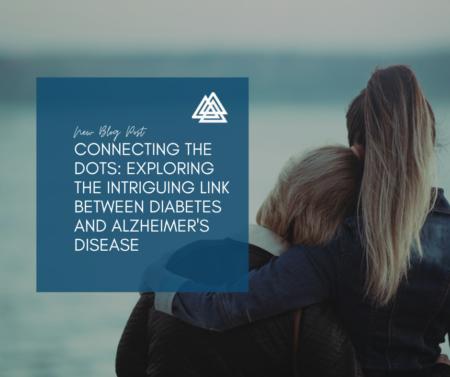 In recent years, medical research has increasingly suggested a significant connection between diabetes and Alzheimer’s disease, two of the most challenging health conditions affecting millions worldwide. While at first glance these diseases might seem unrelated—diabetes being primarily a metabolic disorder and Alzheimer’s a neurodegenerative condition—their intersection reveals fascinating insights that could pave the way for better prevention and treatment strategies.
In recent years, medical research has increasingly suggested a significant connection between diabetes and Alzheimer’s disease, two of the most challenging health conditions affecting millions worldwide. While at first glance these diseases might seem unrelated—diabetes being primarily a metabolic disorder and Alzheimer’s a neurodegenerative condition—their intersection reveals fascinating insights that could pave the way for better prevention and treatment strategies.
Understanding Diabetes and Alzheimer’s Disease
Diabetes is a chronic condition characterized by high levels of glucose in the blood. This happens either because the body cannot produce enough insulin (Type 1 diabetes) or because it cannot effectively use the insulin it produces (Type 2 diabetes). Insulin is a hormone crucial for regulating blood sugar levels, and its malfunction can lead to severe complications, including cardiovascular disease, kidney damage, and neuropathy.
Alzheimer’s disease, on the other hand, is a progressive brain disorder that leads to memory loss, cognitive decline, and ultimately, the inability to perform everyday tasks. It is the most common cause of dementia among older adults, with no current cure and limited treatment options that only temporarily alleviate symptoms.
The Emerging Connection
Recent studies have uncovered several mechanisms that might explain the link between diabetes and Alzheimer’s:
- Insulin Resistance and Brain Health: Insulin resistance, a hallmark of Type 2 diabetes, doesn’t just affect the body’s ability to manage glucose. It also impacts the brain. Insulin plays a critical role in brain function, including memory formation and synaptic health. When brain cells become insulin-resistant, their ability to communicate and maintain cognitive functions diminishes, potentially leading to Alzheimer’s.
- Inflammation: Chronic inflammation is a common thread running through both diabetes and Alzheimer’s. High blood sugar levels in diabetes cause inflammation, which can damage blood vessels and lead to cardiovascular problems. Similarly, Alzheimer’s disease is associated with neuroinflammation—an inflammatory response in the brain that contributes to neuronal damage and cognitive decline.
- Amyloid Plaques: One of the key features of Alzheimer’s disease is the accumulation of amyloid-beta plaques in the brain. Some researchers believe that high blood sugar levels and insulin resistance might accelerate the formation of these plaques, though the exact mechanisms are still under investigation.
- Vascular Damage: Diabetes is known to cause vascular damage throughout the body, including the brain. This can lead to reduced blood flow and contribute to the development of Alzheimer’s by depriving brain cells of the necessary oxygen and nutrients.
Implications for Prevention and Treatment
Understanding the link between diabetes and Alzheimer’s opens new avenues for prevention and treatment:
- Lifestyle Interventions: Emphasizing a healthy diet, regular exercise, and weight management can reduce the risk of developing both diabetes and Alzheimer’s. Diets rich in vegetables, fruits, whole grains, and lean proteins, along with low sugar intake, are particularly beneficial.
- Medications: Some diabetes medications are being explored for their potential to prevent or treat Alzheimer’s. For instance, drugs that improve insulin sensitivity might also protect against cognitive decline.
- Regular Monitoring: For people with diabetes, regular monitoring of blood sugar levels and maintaining good glycemic control are crucial. Early intervention in diabetes management might reduce the risk of developing Alzheimer’s.
The intriguing link between diabetes and Alzheimer’s disease underscores the interconnected nature of our body’s systems. By understanding how these conditions influence each other, we can develop more comprehensive strategies to combat them. Research in this area is still evolving, but it holds promise for new therapies and prevention techniques that could improve the quality of life for millions. As science continues to connect the dots, the hope is that we can turn these insights into meaningful actions that benefit individuals and communities worldwide.
